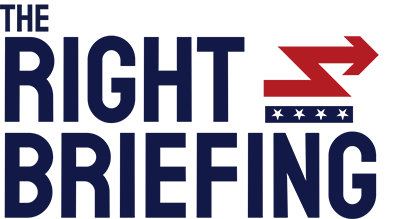In a late-Friday surprise that has Wall Street—and Silicon Valley—buzzing, President Trump has revised his sweeping reciprocal tariff policy, carving out a major exemption for electronics imported from China and several other countries.
The U.S. Customs and Border Protection (CBP) announced that smartphones, computer monitors, routers, semiconductor chips, and various electronic parts will now be exempt from the administration’s recently announced 145% tariff on Chinese goods. The exemption also applies to products removed from bonded warehouses as early as April 5.
Smartphones and computers are China’s largest export to the United States…
Now exempt from tariffs. pic.twitter.com/IDOttwotl0
— Geiger Capital (@Geiger_Capital) April 12, 2025
Translation: Big Tech just dodged a financial missile.
According to Wedbush Securities, roughly 90% of Apple’s iPhone production and assembly occurs in China. Had the tariffs gone into full effect for electronics, the ripple effects on Apple, Nvidia, Microsoft, and other tech giants would have been immense—raising costs, disrupting supply chains, and potentially hammering stock prices.
Instead, tech firms can “breathe a huge sigh of relief,” said analysts at Wedbush. “This is the best news possible for tech investors… a big step forward for US tech to get these exemptions and the most bullish news we could have heard this weekend.”
CBP cited a presidential memorandum—issued Friday, but not yet publicly released—as the basis for the policy change. While the White House has not commented directly, the move signals that the Trump administration is willing to blend hardline trade enforcement with strategic flexibility when it comes to protecting U.S. companies.
The revised tariff guidance also includes exemptions for high-end routers, memory chips, and critical components used in AI hardware and server infrastructure. For companies like Nvidia and Microsoft, which are deeply involved in the global semiconductor and cloud computing markets, the exemption is a much-needed lifeline.
The exemptions also serve a broader strategic purpose: avoiding major price hikes on consumer electronics ahead of the 2025 holiday season. That’s not just smart trade policy—it’s smart politics.
As the tariff war continues to evolve, analysts caution that the reprieve is likely temporary, with further negotiations expected to play out over several months.
But for now, Big Tech is back in the game. And President Trump just reminded the world that even the hardest punches can come with surgical precision.


Leave a Comment